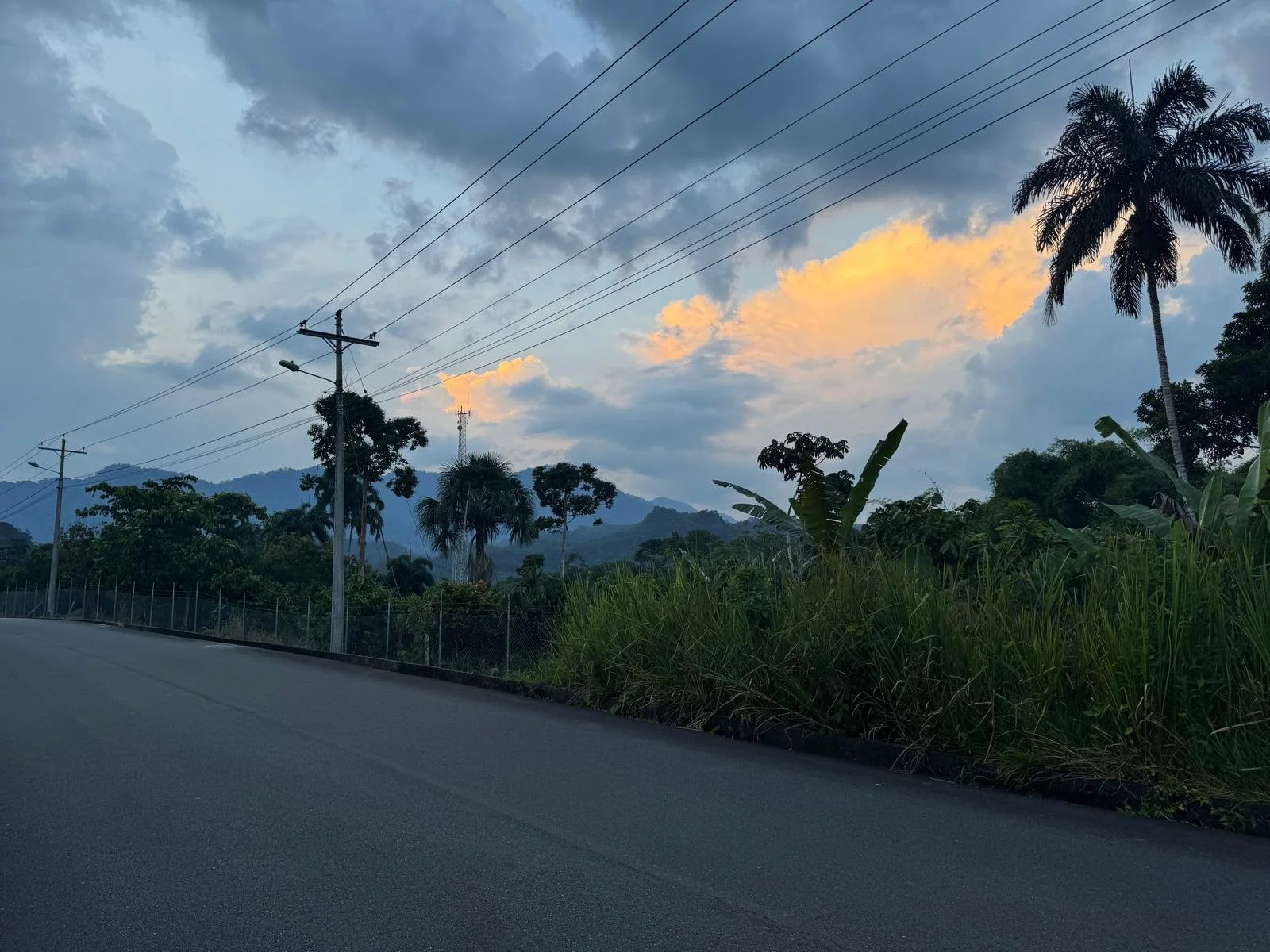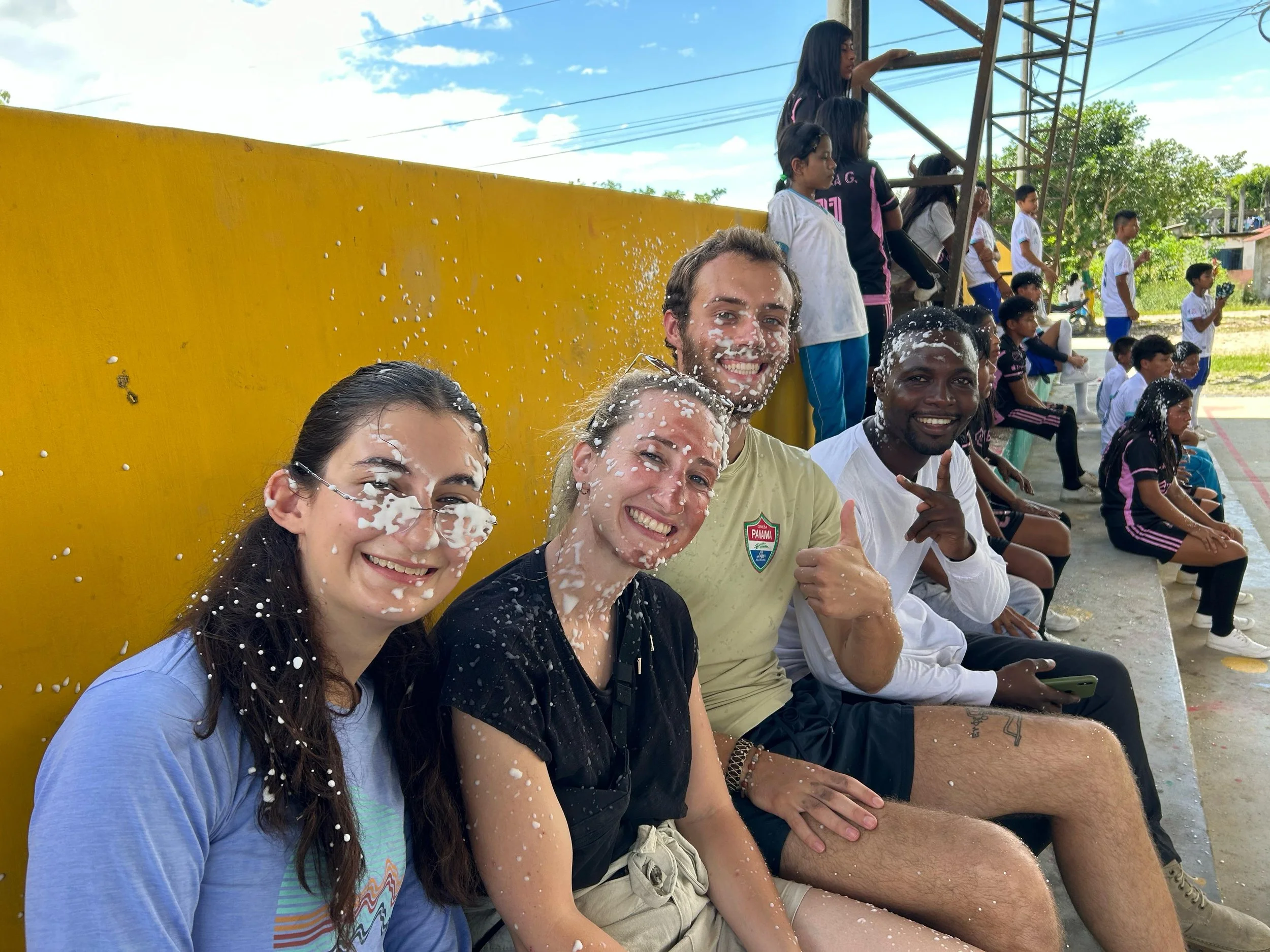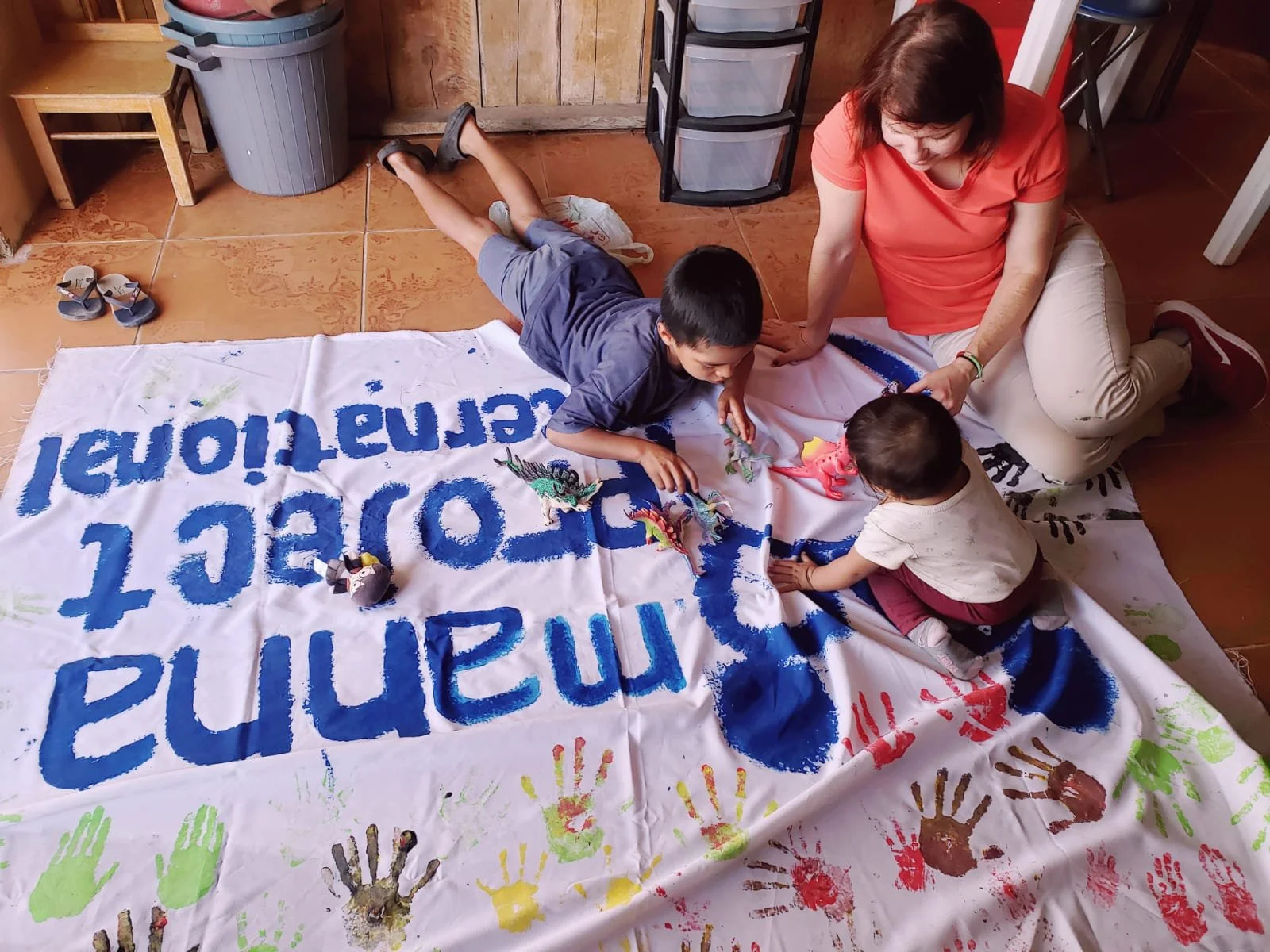This week the Manna house was inundated with cookies and chocolate from Trader Joe's, which could only mean one thing... the first parent of the year. My mom flew down to visit for about ten days, which I spent showing her the Manna library and the Valle de los Chillos, as well as travelling with her to Quilotoa and Otavalo. To be honest, it was a little difficult to be away from the Manna house for so long...after three months I feel I have already grown so close to my Manna family that it was difficult to be without their smiling faces and missing out on their daily lives, even briefly. Even taking a few days off and missing out on some of my programs was difficult-- I love getting to know and serve the community here! But I was surprised at home much light my travels with my mom helped shed on these thirteen months as a whole.
As we traveled around Ecuador, we met many expats and had conversations that reminded me just how much I love and appreciate this country. An expat I met in Otavalo who has lived in Ecuador for more than ten years shared how deeply she appreciates the welcome she received in to the community she lives in. Even after ten years, her host family from her semester abroad in Quito call her "ñaña"-- sister. After only three months here, I am already experiencing this deeply moving spirit of welcoming from the Ecuadorians that I interact with every day and am thankful to call my friends. Another expat shared with me how she moved down to Ecuador with her husband to open a sustainable, socially conscious coffee co-op and cafe, and how she appreciates her daily opportunity to give back to others, and how they often give more to her than they even know. Her experiences couldn't resonate with me more... in my work with Manna I have never felt more fulfilled in my work and convinced that I am contributing to something meaningful just by touching peoples lives, in even a small way.

On my mom's last day in Ecuador we visited the Teleferico, a cable car that stretches up the side of the Pichincha Volcano, overlooking the city of Quito and the surrounding countryside. Even though during my first week in Ecuador I took the Teleferico to overlook the city, there was something much more meaningful about seeing the city from the air again three months into my life here. It can be hard to be here sometimes, hard to be away from my family, hard to navigate new friendships and communities while straddling a language barrier (even though it is shrinking every day!), hard to devote myself to such intensive and multi-layered work as community development. But it is so worth it; I love this city and this nation, and I can't imagine how it will feel to have to leave when my time here is up. Seeing the country through the eyes of others-- my mother, my new expat friends, other individuals I met in the past week-- reminded me of how important it is to open my eyes daily to the blessing of being here. Even three months in, Ecuadorians have already begun to open their lives to me, and that is something for which I will be eternally grateful.














